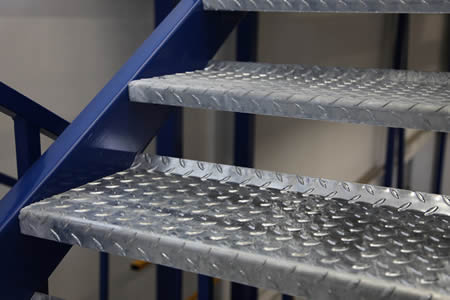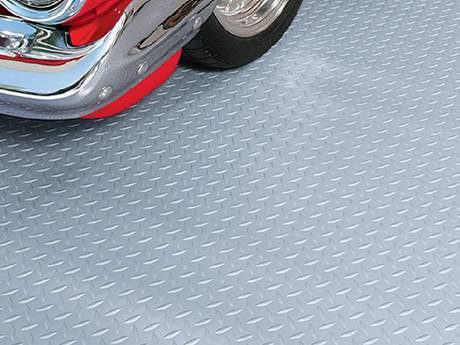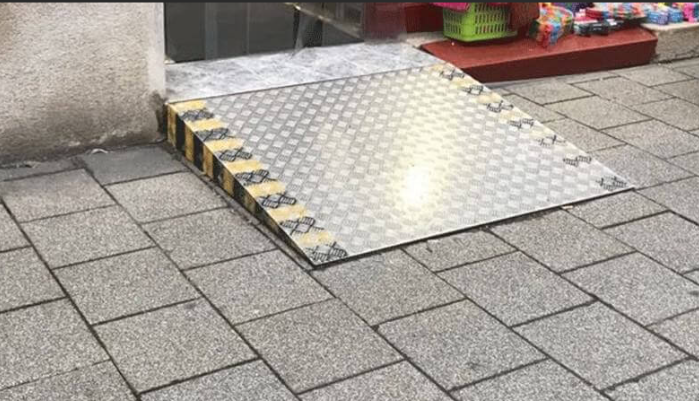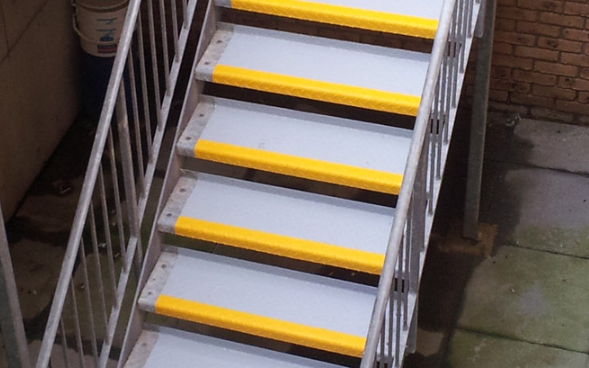O1 vs A2 Tool Steel: Which is Better for Knives and Tools?
1053Detailed comparison for O1 vs A2 tool steel for knives and tooling in their properties. Find the right O1 or A2 steel supplier with global delivery service.
View detailsSearch the whole station
Checker plates, also known as diamond plates or tread plates, are widely used in industrial, commercial, and residential settings for their anti-slip properties, durability, and aesthetic appeal. Choosing the right type, thickness, and pattern is critical to ensure safety, longevity, and cost-efficiency. In this guide, we explore the most common applications of checker plates, answer the questions customers frequently ask, and provide practical recommendations for stairs, flooring, garages, driveways, and outdoor use.

For indoor stair treads, a thickness of 3–4 mm is usually sufficient. Patterns like 5-bar tread plate or diamond plate stair treads enhance traction and reduce the risk of slips. For industrial or high-traffic stairs, a thickness of 4–6 mm is recommended, ideally made of carbon steel Q235/Q345 for durability.


View galvanized steel plate options: Galvanized Steel Plate

These details are especially important in commercial buildings, industrial stairways, and public facilities.
Providing clear guidance on thickness helps customers choose the right plate for their specific application. Below is a practical reference:
| Application Scenario | Recommended Thickness (mm) | Recommended Material |
| Indoor stair treads | 3–4 | Carbon steel / Aluminum |
| Industrial stair treads | 4–6 | Carbon steel |
| Garage flooring | 4.5–6 | Carbon steel |
| Driveway / outdoor ramps | ≥6 | Hot-dip galvanized steel |
| Warehouse and industrial floor | 5–8 | High-strength carbon steel |
Note: The weight per square meter varies depending on thickness and pattern type. Raised patterns generally add 3–5% more weight than flat plates.
Patterns are not just aesthetic; they also impact safety:
| Recommended Material | Common Use / Advantages |
| Diamond Plate | Most common, good anti-slip, industrial use |
| 5-Bar Tread Plate | Excellent traction on stairs and platforms |
| Raised Bar Pattern | Lightweight areas, moderate slip protection |
| Teardrop / Lenticular | Smooth surface, suitable for pedestrian areas |
For more purchase guide: Checkered Steel Plate: Types, Sizes, Weight, Applications & Price Guide
Checker plates are versatile materials that provide anti-slip surfaces, durability, and aesthetic appeal for stairs, garages, workshops, driveways, and outdoor applications. Choosing the right material, thickness, and pattern ensures safety and longevity while meeting budget and functional requirements.
To explore a wide range of steel checker plates, visit our product page:
Checkered Steel Plate Supplier – CJM Steel Group
Contact us for custom sizes, weight charts, and export inquiries to find the perfect checker plate solution for your project.
WhatsApp: +86 181 9190 6640
Email: info@cjmstainlesssteel.com
Detailed comparison for O1 vs A2 tool steel for knives and tooling in their properties. Find the right O1 or A2 steel supplier with global delivery service.
View detailsLearn about ASTM A615 rebar: chemical composition, yield & tensile strength of Grades 40, 60, 75, common applications, ASTM A706 comparison, norma ASTM A615.
View detailsExplore key pressure vessel steel grades including ASTM A516, A387, EN P265GH, P355GH, and GB Q345R. Compare properties and applications in boilers and tanks.
View detailsDiscover whether cold or hot rolled steel suits your appliance needs best. Compare performance, finish, price & choose the ideal steel for manufacturing.
View details
HelloPlease log in